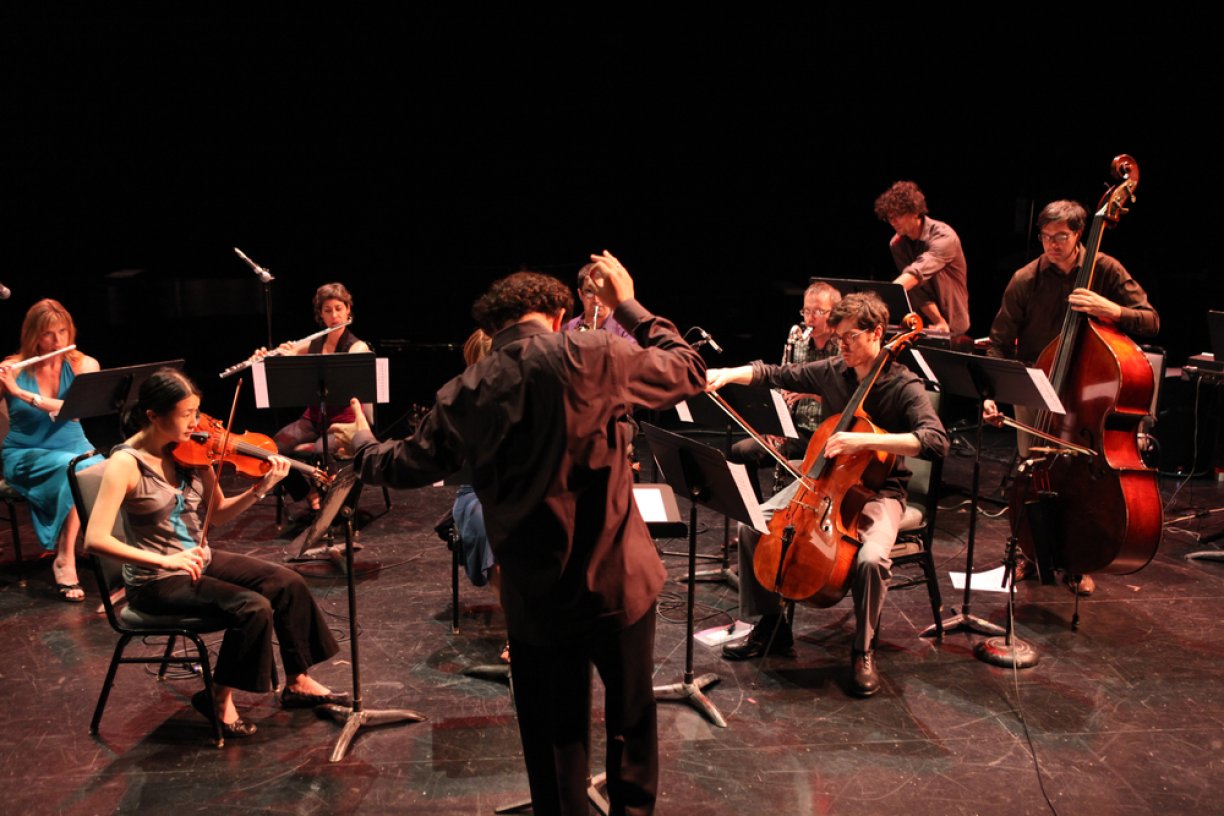A special presentation of Morton Feldman's rarely heard 4 1/2 hour epic, For Philip Guston (1984), culminates the three night Either/Or Spring Festival and represents Either/OR's tenth anniversary concert. The ensemble has championed Feldman's music for the past decade and his late trios for flute, piano, and percussion are among the works closest to the heart of the Either/Or’s repertoire. This will be a rare performance of one of the true masterworks of late 20th century experimentalism, balancing the sheer timbral beauty of this unique ensemble with virtuosic interplay and Feldman's inimitable sense of scale.
Richard Carrick, piano and celeste
Margaret Lancaster, flutes
David Shively, percussion
Since 2004, Either/Or has been at the forefront of New York's contemporary music scene, programming new and recent works for unconventional ensembles or soloists that are rarely heard elsewhere. Equally informed in American experimentalism and in the European avant-garde, Either/Or collaborates with emerging and established artists from a broad aesthetic spectrum. Performances throughout the Northeast, including Philadelphia Museum of Art, ICA Boston, Miller Theatre, The Kitchen, and venues across NYC, as well as frequent appearances at experimental music venues such as The Stone, Roulette, and ISSUE Project Room.
Morton Feldman (1926 – 1987) was an American composer, born in New York City. A major figure in 20th century music, Feldman was a pioneer of indeterminate music, a development associated with the experimental New York School of composers also including John Cage, Christian Wolff, and Earle Brown. Feldman's works are characterized by notational innovations which he developed to create his characteristic sound: rhythms which seem to be free and floating; pitch shadings which seem softly unfocused; a generally quiet and slowly evolving music; recurring asymmetric patterns. His works after 1977, including For Philip Guston explore extremes of duration.
As a child he studied piano with Vera Maurina Press, who, according to the composer himself, instilled in him a "vibrant musicality rather than musicianship."Feldman's first composition teachers were Wallingford Riegger, one of the first American followers of Arnold Schoenberg, and Stefan Wolpe. In early 1950’s he met John Cage in the lobby of the New York Philharmonic and the two composers quickly became good friends, with Feldman moving into the building Cage lived in. Through Cage, he met painters Richard Lippold (who had a studio next door), Sonia Sekula, Robert Rauschenberg, and Philip Guston. In a lecture to German students the composer remarked, "If you don't have a friend who's a painter, you're in trouble."

